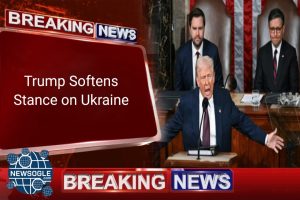Introduction
Imran Khan, the former Prime Minister of Pakistan and chairman of the Pakistan Tehreek-e-Insaf (PTI) party, has been a central figure in the country’s political landscape. His recent incarceration has not only raised questions about his future but has also significantly impacted the ongoing negotiations between the PTI and the current government. This article delves into the implications of Khan’s imprisonment on PTI’s demands in these talks, examining the political dynamics at play and the role of external actors, particularly the United States.
Table of Contents
Background
Imran Khan was sentenced to ten years in prison on charges related to exposing official state secrets. This sentence, along with several other legal challenges, has placed him in a precarious position as Pakistan approaches its elections slated for February 8, 2025. Despite his legal troubles, Khan remains a popular figure in Pakistani politics, with many supporters believing that his imprisonment is politically motivated.
Table 1: Timeline of Imran Khan’s Legal Troubles
| Date | Event |
|---|---|
| April 2022 | Imran Khan ousted through a no-confidence vote. |
| August 2023 | Convicted of corruption; sentenced to three years. |
| December 2023 | Sentenced to ten years for exposing state secrets. |
| January 2025 | Ongoing negotiations between PTI and government. |
The Impact of Imran Khan’s Incarceration on PTI
1. Political Capital and Public Sentiment
Khan’s imprisonment has galvanized his supporters, leading to protests and demonstrations across the country. The PTI has leveraged this public sentiment to strengthen its negotiating position with the government. However, the government’s crackdown on PTI supporters and leaders complicates this dynamic.
Analysis
The public’s perception of Khan as a victim of political persecution plays a crucial role in shaping PTI’s demands during negotiations. The party is likely to push for:
- Release of Political Prisoners: A demand for the release of detained PTI members and supporters.
- Judicial Reforms: Calls for reforms to ensure fair trials and reduce political interference in judicial matters.
2. Negotiation Leverage
Khan’s incarceration provides both challenges and opportunities for PTI in negotiations with the government. While his absence weakens the party’s leadership structure, it also positions PTI as a symbol of resistance against perceived authoritarianism.
Table 2: Potential Negotiation Demands by PTI
| Demand | Rationale |
|---|---|
| Release of Imran Khan | To restore leadership and morale within PTI. |
| Judicial reforms | To ensure fair treatment of political cases. |
| Inclusion in electoral process | To guarantee representation in upcoming elections. |
3. The Role of External Actors
The United States has historically played a significant role in Pakistan’s political landscape. As Imran Khan’s situation unfolds, U.S. involvement could influence negotiations between PTI and the government.
Analysis
The U.S. may leverage its diplomatic relations to advocate for:
- Human Rights: Emphasizing the need for fair treatment of political prisoners.
- Stability: Supporting measures that promote political stability ahead of elections.
Current Negotiations: Challenges Ahead
1. Government Stance
The current government, led by Prime Minister Shehbaz Sharif, views PTI as a significant threat to its stability. The government’s hardline approach towards dissenting voices complicates negotiations.
Table 3: Government Actions Against PTI
| Action | Description |
|---|---|
| Crackdown on Protests | Arrests of PTI supporters following unrest. |
| Legal Challenges | Continued legal actions against party leaders. |
2. Internal Divisions within PTI
Khan’s absence has led to concerns about leadership within PTI. The party must navigate internal divisions while maintaining a united front in negotiations.
Analysis
PTI leaders may need to:
- Consolidate Leadership: Identify interim leaders who can effectively represent the party.
- Maintain Cohesion: Ensure that differing factions within the party remain aligned on key demands.
Conclusion
Imran Khan’s incarceration presents both challenges and opportunities for PTI as it navigates ongoing negotiations with the government. The impact of public sentiment, internal party dynamics, and external influences will shape the outcomes of these talks. As Pakistan approaches its elections, the stakes are high not only for Khan and PTI but also for the future stability of the country.
Future Implications
The outcome of these negotiations will have lasting implications for Pakistan’s political landscape, particularly regarding democratic processes and civil liberties. As stakeholders engage in dialogue, it is crucial that they prioritize national interests over partisan agendas.
Introduction






